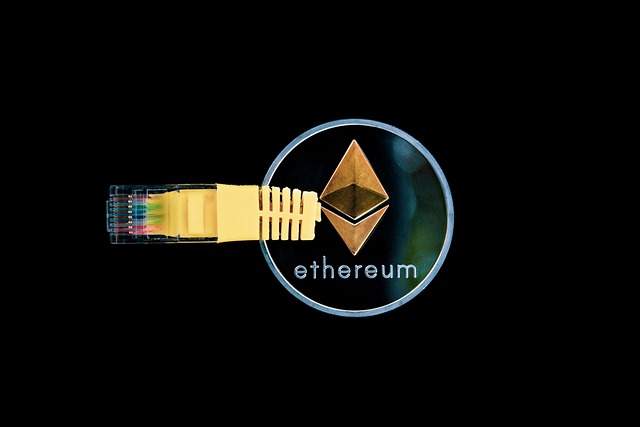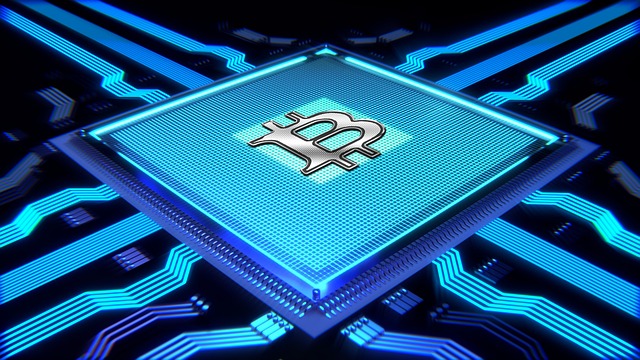Unlocking Crypto Banking’s Potential with DeFi
Unlocking Crypto Banking’s Potential with DeFi

The Evolution of Traditional Banking
Traditional banking has come a long way since its inception centuries ago. From the simple concept of storing money and offering loans, it has evolved into a complex system that encompasses a wide range of financial services. In the early days, banks primarily served as a safe haven for individuals to deposit and secure their wealth. However, with advancements in technology and the changing needs of society, traditional banks have expanded their offerings to include features like credit cards, mortgages, and investment options.
Over time, traditional banking has also adapted to societal and economic changes. For instance, the introduction of online banking revolutionized the way we interact with financial institutions. It eliminated the need for physical visits to the bank and provided convenient access to account information and transaction history. Additionally, the evolution of mobile banking further enhanced accessibility, enabling customers to manage their finances on the go. These developments have made traditional banking more user-friendly and efficient, allowing customers to have greater control over their financial activities. However, as technology continues to advance, a new player has emerged on the financial scene – decentralized finance (DeFi).
The Rise of Decentralized Finance
Decentralized finance, or DeFi, has emerged as one of the most exciting developments in the world of banking and finance. Unlike traditional banking systems that rely on intermediaries such as banks and other financial institutions, DeFi operates on blockchain technology, enabling peer-to-peer transactions without the need for a central authority. This decentralization has opened up a whole new realm of possibilities, providing individuals with greater control over their assets and enabling a borderless, transparent, and inclusive financial system.
One of the key aspects driving the rise of DeFi is its ability to enable financial services for underserved populations. With traditional banking, many individuals around the world face significant barriers to accessing basic financial services, such as opening a bank account or obtaining a loan. DeFi, on the other hand, leverages blockchain technology to create an open, accessible system that anyone with an internet connection can participate in. This has the potential to empower billions of people who are currently excluded from the global financial system, allowing them to manage and grow their wealth in ways that were previously unimaginable.
Understanding DeFi: A Brief Overview
Decentralized Finance, commonly known as DeFi, is revolutionizing the way we perceive traditional banking. Unlike traditional banking systems that rely on intermediaries like banks or financial institutions, DeFi operates on a decentralized network.

One of the key features of DeFi is its use of blockchain technology. Blockchain, a decentralized and transparent ledger, enables secure and immutable transactions. This technology ensures that all transactions on the DeFi platform are recorded and cannot be altered, providing users with increased security and trust. Additionally, DeFi allows users to access a wide range of financial services, such as lending, borrowing, and investing, all in a decentralized manner.
The rise of DeFi has brought a newfound sense of financial freedom to individuals and communities around the world. With DeFi, anyone with an internet connection can participate in the global financial system, regardless of their location or socioeconomic status. This has the potential to significantly enhance financial inclusion, especially for the unbanked and underbanked populations who have limited access to traditional banking services.
Overall, the underlying principles of DeFi, including decentralization, transparency, and accessibility, are reshaping the way we interact with the financial industry. As DeFi continues to evolve and gain traction, its impact on traditional banking will become increasingly apparent. In the following sections, we will delve deeper into the specific aspects of DeFi and explore its potential to transform the future of crypto banking.
• Decentralized Finance (DeFi) is revolutionizing traditional banking systems
• DeFi operates on a decentralized network, eliminating the need for intermediaries and reducing fees
• Blockchain technology is a key feature of DeFi, ensuring secure and immutable transactions
• Users can access a wide range of financial services on the DeFi platform in a decentralized manner
• DeFi provides financial freedom to individuals worldwide, regardless of their location or socioeconomic status
• It has the potential to enhance financial inclusion for the unbanked and underbanked populations
• The principles of decentralization, transparency, and accessibility are reshaping the financial industry through DeFi’s impact
on traditional banking.
DeFi vs Traditional Banking: A Comparison
Traditional banking and decentralized finance (DeFi) each offer their own unique advantages and drawbacks, creating a distinct comparison between the two systems. Traditional banking, with its long-established infrastructure and regulatory framework, provides a sense of familiarity and trust for many individuals.

On the other hand, DeFi represents a new and rapidly growing approach to banking, leveraging blockchain technology to offer open and decentralized financial services. The primary appeal of DeFi lies in its ability to eliminate the need for intermediaries, thereby providing users with greater control over their finances. With DeFi, individuals can access a range of financial products and services, including lending, borrowing, and trading, seamlessly and without the limitations of traditional banking. Moreover, DeFi often operates on a 24/7 basis, allowing users to transact at their convenience. However, it is essential to note that the world of DeFi is still relatively new, and it faces challenges such as lack of regulation and security concerns that need to be addressed for widespread adoption.
Unlocking the Potential of DeFi in Crypto Banking
Decentralized Finance (DeFi) has been steadily gaining popularity in the world of crypto banking, as it presents a new and promising way to unlock the potential of the traditional banking system. Unlike traditional banking, which relies on intermediaries such as banks and financial institutions, DeFi operates on decentralized networks powered by blockchain technology. This revolutionary approach eliminates the need for intermediaries, allowing for direct peer-to-peer transactions and greater security.
One of the key advantages of DeFi in crypto banking is its accessibility. Traditional banking systems often leave out a significant portion of the global population, particularly those in underdeveloped regions who lack access to basic financial services. DeFi, on the other hand, has the potential to bridge this gap and enhance financial inclusion. With just a smartphone and an internet connection, individuals from any corner of the world can easily participate in decentralized finance activities, empowering them with the ability to save, invest, and access financial tools that were previously out of reach.
Enhancing Financial Inclusion through DeFi
DeFi, or decentralized finance, has emerged as a powerful tool for enhancing financial inclusion in the cryptocurrency world. Unlike traditional banking systems that often exclude individuals due to various reasons like geographical barriers or lack of documentation, DeFi opens up opportunities for the unbanked and underbanked populations. By utilizing blockchain technology and smart contracts, DeFi platforms enable individuals to access a wide range of financial services, such as lending, borrowing, and earning interest, without the need for intermediaries like banks.
One of the key benefits of DeFi for enhancing financial inclusion is its accessibility. Traditional banking systems are often limited by physical branches and require individuals to meet stringent requirements to open accounts or access loans. In contrast, DeFi platforms are built on public, decentralized networks and can be accessed from anywhere in the world with an internet connection. This low barrier to entry allows individuals, regardless of their location or socioeconomic status, to participate in the global financial ecosystem. Furthermore, DeFi platforms provide greater transparency and autonomy, empowering individuals to manage their finances without relying on centralized authorities. As a result, DeFi has the potential to bridge the gap between the banked and unbanked populations, unlocking new opportunities for financial inclusion and economic growth.
DeFi Lending and Borrowing: A Game-Changer for Crypto Banking
With the emergence of decentralized finance (DeFi), the avenues for lending and borrowing in the crypto banking space have been completely revolutionized. Traditional banking systems have always held a monopoly over lending and borrowing activities. However, DeFi lending and borrowing has opened up a whole new world of opportunities for individuals looking to borrow or lend their digital assets.
One of the key advantages of DeFi lending and borrowing is the elimination of intermediaries. In traditional banking, borrowers have to go through several layers of intermediaries such as banks and credit rating agencies, which can be time-consuming and costly. With DeFi, on the other hand, borrowers can access loans directly from lenders using smart contract protocols. This not only reduces the overall cost of borrowing but also increases the speed of loan approval and disbursement. Additionally, lenders can earn attractive interest rates by lending out their crypto assets, enabling them to grow their wealth passively.
DeFi lending and borrowing has truly disrupted the traditional banking landscape, bringing about a new level of efficiency and accessibility to crypto banking. As the industry continues to evolve, it will be interesting to see how DeFi lending and borrowing further transforms the way we think about and interact with financial services.
The Role of Smart Contracts in DeFi Banking
Smart contracts play a pivotal role in the world of DeFi banking. These self-executing contracts are built on blockchain technology and automatically execute agreements once predetermined conditions are met.

One of the key advantages of smart contracts in DeFi banking is the increased trust and security they provide. Traditional banking systems often involve multiple layers of intermediaries, which can lead to delays, errors, and even fraud. Smart contracts, on the other hand, ensure that transactions are trustless and tamper-proof. With the use of cryptography and consensus algorithms, smart contracts provide a level of security that traditional banking systems struggle to match. This not only protects users’ financial assets but also reduces the risk of corruption and manipulation within the banking system. In summary, the use of smart contracts in DeFi banking revolutionizes the way transactions are conducted, providing a secure and transparent alternative to traditional banking systems.
Exploring Yield Farming and its Impact on Crypto Banking
Yield farming has emerged as one of the most intriguing trends in the world of crypto banking. It is a process that allows individuals to earn passive income by lending or staking their cryptocurrencies. How does it work? Well, users can deposit their crypto assets into specialized platforms, known as liquidity pools, and in return, they receive rewards in the form of additional tokens. These rewards are generated through various mechanisms such as transaction fees or a portion of the interest earned on loans. The potential returns can be quite attractive, but it should be noted that yield farming also carries certain risks. Due to the decentralized nature of these platforms, there is a lack of regulation and oversight. It’s crucial for users to thoroughly research and understand the risks before participating in yield farming.
The impact of yield farming on crypto banking cannot be underestimated. It has decentralized the lending and borrowing landscape, allowing anyone with access to cryptocurrencies to participate in the financial ecosystem. Traditional banking systems often have stringent requirements and exclusionary practices, preventing individuals without sufficient collateral or credit history from accessing loans or earning interest on their assets. In contrast, yield farming opens up opportunities for financial inclusion on a global scale. With the rise of decentralized finance (DeFi), individuals now have the power to lend, borrow, and earn interest without the need for intermediaries or traditional banking institutions. This democratization of finance has the potential to reshape the way we think about banking and empower individuals to have more control over their financial lives.
The Future of Crypto Banking: Embracing DeFi
The future of crypto banking looks incredibly promising as more and more financial institutions embrace decentralized finance (DeFi). With the rise of DeFi platforms and protocols, traditional banking is being challenged like never before. Unlike traditional banking, which relies on centralized intermediaries, DeFi operates on blockchain technology, leveraging smart contracts to provide secure and transparent financial services.
One of the key advantages of embracing DeFi in crypto banking is the increased accessibility for individuals around the world. Traditional banking often excludes those who cannot meet the stringent requirements or lack the necessary documentation. In contrast, DeFi opens up a world of possibilities by removing the barriers of entry and allowing anyone with an internet connection to participate. This inclusivity has the potential to revolutionize the way people access and manage their financial assets. Additionally, by leveraging DeFi, individuals can take control of their own financial destiny, without relying on third-party institutions. This level of autonomy and empowerment is truly transformative in the realm of banking.
What is the future of crypto banking?
The future of crypto banking lies in embracing decentralized finance (DeFi) to revolutionize traditional banking systems.
How has traditional banking evolved?
Traditional banking has evolved over time, but it still relies on centralized intermediaries and faces limitations in terms of accessibility and efficiency.
What is decentralized finance (DeFi)?
DeFi is a new paradigm that uses blockchain technology to create open and transparent financial systems without the need for intermediaries like banks.
How does DeFi differ from traditional banking?
DeFi offers a more inclusive and accessible approach to banking, with features such as peer-to-peer transactions, global accessibility, and automated smart contracts.
How can DeFi unlock the potential of crypto banking?
DeFi can unlock the potential of crypto banking by providing innovative financial services, such as lending, borrowing, and earning interest, all powered by blockchain technology.
How does DeFi enhance financial inclusion?
DeFi eliminates the need for traditional banking infrastructure, making financial services accessible to the unbanked population worldwide.
What is DeFi lending and borrowing?
DeFi lending and borrowing allow individuals to lend their cryptocurrencies and earn interest or borrow assets by using their crypto as collateral.
What role do smart contracts play in DeFi banking?
Smart contracts are self-executing agreements coded on the blockchain, enabling automated and secure transactions in DeFi banking without the need for intermediaries.
What is yield farming and how does it impact crypto banking?
Yield farming is a DeFi practice where investors provide liquidity to decentralized exchanges and earn rewards in the form of interest or additional tokens, thus enhancing the potential returns of crypto banking.
How do you see the future of crypto banking?
The future of crypto banking is bright, with DeFi leading the way towards a more accessible, inclusive, and efficient financial system that empowers individuals globally.
Todays Featured Product:
Buy, exchange and grow your crypto securely with a Ledger hardware wallet, combined with the Ledger Live app. It’s never been easier to keep your crypto safe and accessible. Buy direct from Ledger.com and get todays Special Offers Here.




